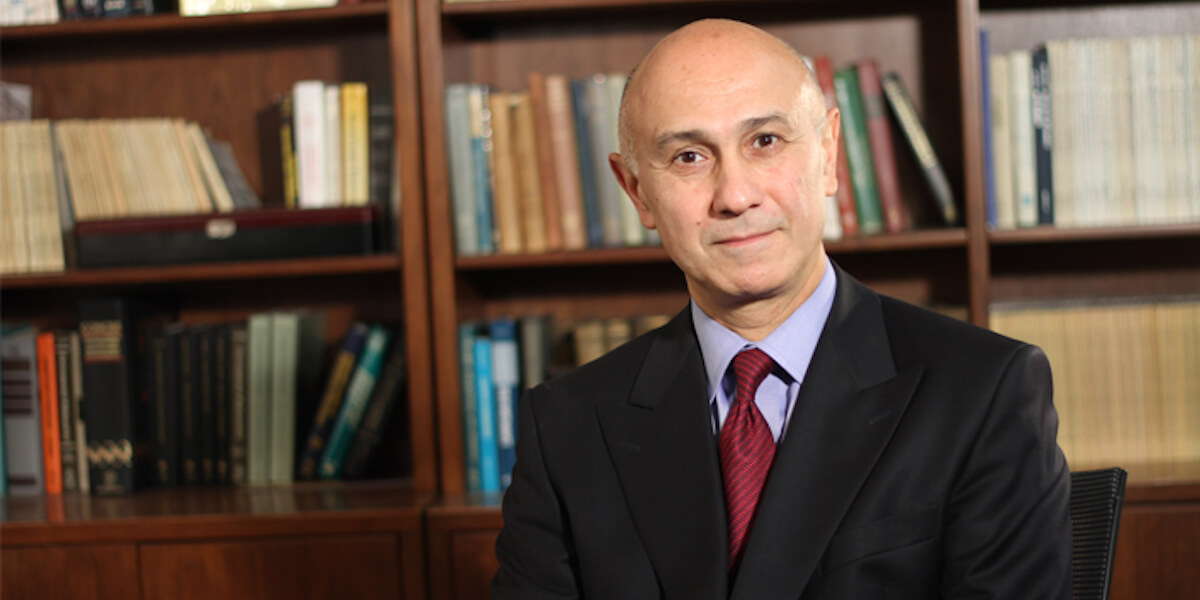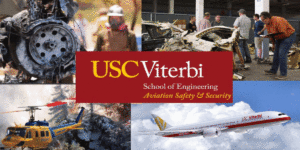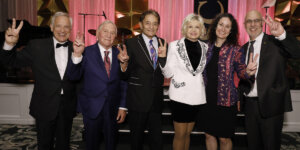
Professor of Civil and Environmental Engineering, Industrial and Systems Engineering, and International Relations Najmedin Meshkati
Professor of Civil and Environmental Engineering, Industrial and Systems Engineering, and International Relations Najmedin Meshkati has been selected as one of the 2022 “Titans” of the Human Factors and Ergonomics Society (HFES).
HFES is the world’s largest scientific association for human factors/ergonomics professionals, with an aim to advance the science and practice of designing systems that work for humans. The Titans of HFES Symposium on 7-8 February 2022 was launched as an inaugural showcase of the leading researchers and practitioners in the field.
Meshkati was featured at the symposium, along with 18 other influential researchers and leaders. He presented a lecture about what could be learned from past complex systems disasters, in order to prevent future accidents and disasters. Meshkati has an extensive background in risk reduction and the reliability enhancement of complex technological systems within industries such as nuclear power, aviation, petrochemical industries, and transportation. He served as a member and technical advisor on two national panels in the United States investigating major accidents, including one that examined the lessons learned from the Fukushima nuclear accident and how these could be applied to improve the safety and security of U.S. nuclear plants. Meshkati has inspected many petrochemical and nuclear power plants around the world, including Chernobyl in 1997 and Fukushima Daiichi and Daini in 2012.
He is a Commissioner of The Joint Commission—a not-for-profit organization that accredits and certifies nearly 20,000 healthcare organizations and programs in the United States and operates in 92 countries around the world. Meshkati is also on the board of directors of the Center for Transforming Healthcare. He is a member of two boards of the National Academies of Sciences, Engineering and Medicine—the Board on Human-Systems Integration the Gulf Offshore Energy Safety Board.
Meshkati is an elected Fellow of the HFES and the 2015 recipient of the society’s highest honor, the Arnold M. Small President’s Distinguished Service Award, for his “career-long contributions that have brought honor to the profession and the society.” He was also the 2007 recipient of the HFES Oliver Keith Hansen Outreach Award. He was featured by HFES in a video below, where he offers an overview of his work and his presentation, which was titled, “Athena Wisdom or Cassandra Curse: What We Have Learned About Complex Systems Disasters for Preventing the Next One!”
Meshkati first came to USC as a graduate student in 1976 and received his M.S. in Engineering Management in 1978, and Ph.D. in Industrial and Systems Engineering in 1983, after simultaneously receiving a B.S. in industrial engineering and B.A. in political science in 1976 from Sharif (Arya-Meher) University of Technology and Shahid Beheshti University (National University of Iran).
For the past 35 years, he has been teaching and conducting research on risk reduction and reliability enhancement of complex technological systems, as well human factors and aviation safety-related issues within USC’s 70-years old world-renowned Aviation Safety and Security Program. He has received numerous teaching awards from USC, USC Viterbi and the Daniel J. Epstein Department of Industrial and Systems Engineering, including the 2013 Steven B. Sample Teaching and Mentoring Award from the USC Parents Association.
In 2009 he was announced by the National Academies as a Jefferson Science Fellow for the U.S. State Department, joining as a Senior Science and Engineering Advisor in the Office of Science and Technology Advisors to the Secretary of State in Washington D.C.
Meshkati has worked with the U.S. Chemical Safety and Hazard Investigation Board, as an expert on human factors and safety culture, on the investigation of the BP Refinery explosion in Texas City in 2005. He served as a member of the National Research Council (NRC) Committee on Human Performance, Organizational Systems and Maritime Safety. He also served as a member of the NRC Marine Board’s Subcommittee on Coordinated R&D Strategies for Human Performance to Improve Marine Operations and Safety.
He is an elected fellow of HFES, an AT&T Faculty Fellow in Industrial Ecology, a NASA Faculty Fellow (Jet Propulsion Laboratory, 2003 and 2004), and was a recipient of the Presidential Young Investigator Award from the National Science Foundation in 1989.
Meshkati is also an Associate (ex-Research Fellow) with the Project on Managing the Atom at the Belfer Center for Science and International Affairs at Harvard Kennedy School. He was an Associate with the Mossavar-Rahmani Center for Business and Government at Harvard from 2018-2020.
Published on March 1st, 2022
Last updated on March 1st, 2022












